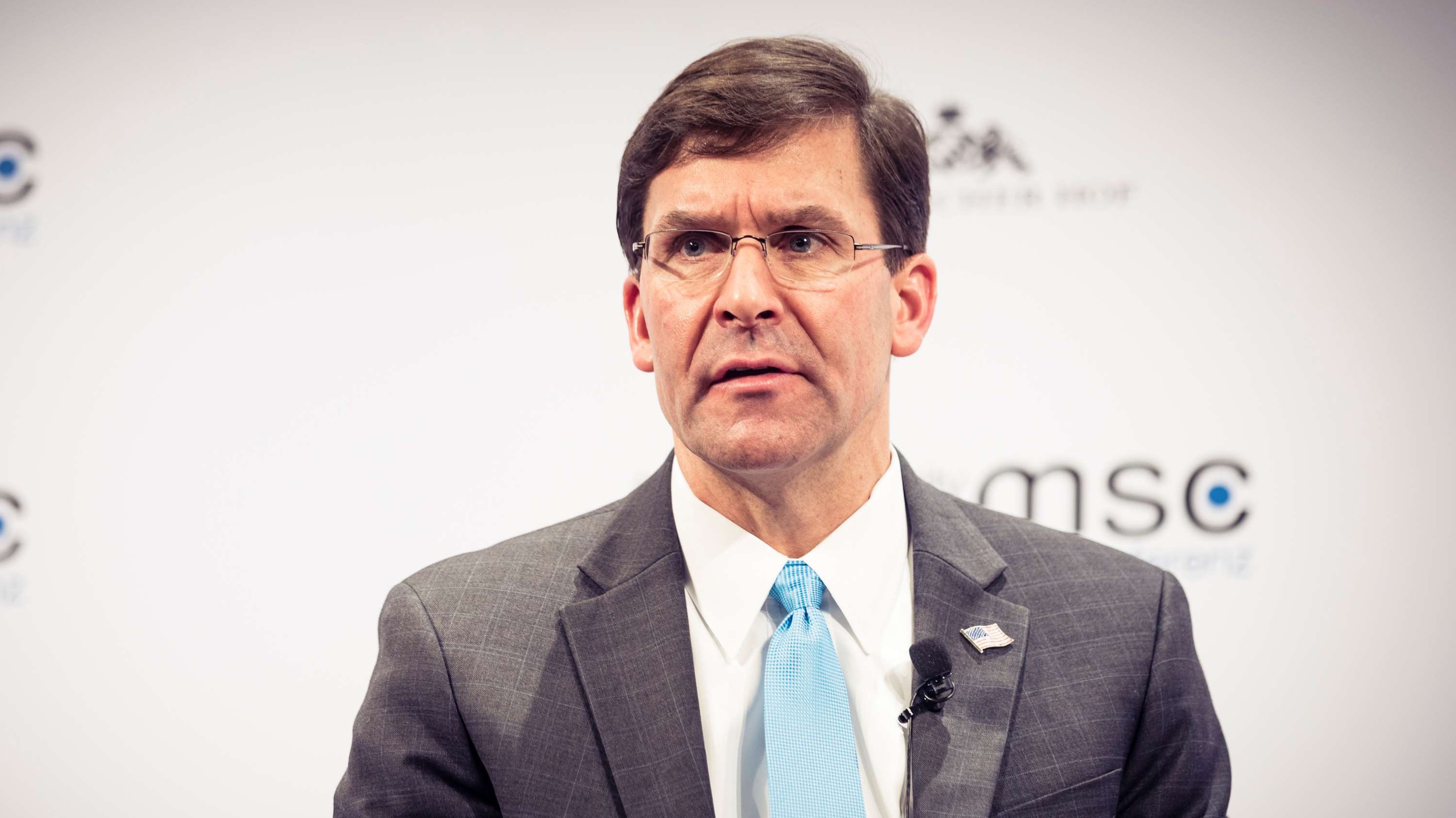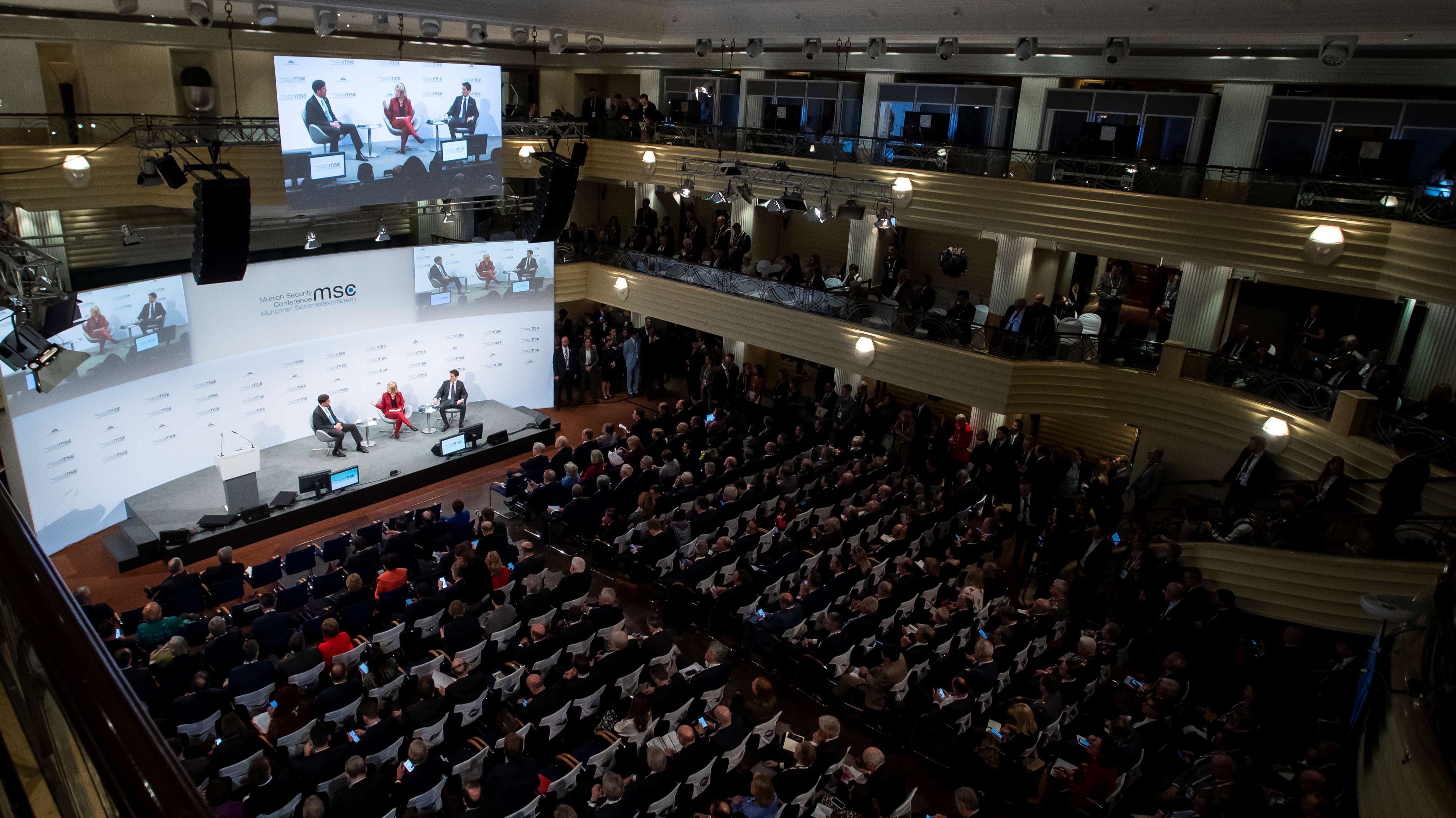US Defence Secretary says Huawei 5G will put alliances – including NATO – at risk
Countries using Chinese 5G technology will put intelligence cooperation at risk reiterates US.

Get up to speed with 5G, and discover the latest deals, news, and insight!
You are now subscribed
Your newsletter sign-up was successful
At the Munich security conference on Saturday, The US defence secretary, Mark Esper warned that US alliances, including the future of NATO, will be at risk if European countries use Huawei technology in their 5G networks.
In his speech, Esper also warned that future intelligence cooperation would be also be jeopardised because the US would no longer be certain its communications networks were secure.
Malign activities

“Huawei and 5G are today’s poster child for this nefarious activity.”
US defence secretary, Mark Esper
“China’s growth over the years has been remarkable, but in many ways it is fueled by theft, coercion, and exploitation of free market economies, private companies, and colleges and universities. American and European institutions and corporations face the brunt of these malign activities, and we have seen a multitude of examples where our economies and companies have suffered as a result. But Beijing’s bad behaviour will only take them so far. The world is increasingly aware of its motives – and responding in turn. Regrettably, rather than change course, Party leadership continues its rampant technology theft, while resolving to eventually end its reliance on foreign innovation altogether, independently develop its own systems, and then dominate critical sectors and markets. Huawei and 5G are today’s poster child for this nefarious activity,” said Esper in his passionate speech.
“represented an enormous risk to the idea of the west”
US secretary of state, Mike Pompeo
US secretary of state, Mike Pompeo, was also in attendance at the Munich security conference on Saturday and echoed Esper’s warnings. Pompeo said the Chinese Communist party “represented an enormous risk to the idea of the west”. “Europeans care deeply about privacy. We cannot allow information to travel across networks if we do not have confidence that it will not be hijacked by the Chinese Communist party. It is just unacceptable and we all know that,” he continued.
Huawei 5G alternative?
It’s clear that the US sees finding an alternative to Chinese company Huawei for its own 5G networks a matter of national security. Indeed, earlier this month, we reported that The White House is currently working with 5G technology companies including Microsoft, Dell and AT&T to develop an alternative to Huawei 5G. This came after the US banning of Huawei, currently the leader in the 5G infrastructure market, from supplying 5G infrastructure to the US telecom network due to potential 5G security risks.
“We are encouraging allied and US tech companies to develop alternative 5G solutions and we are working alongside them to test these technologies at our military bases as we speak,” said Esper. “Developing our own secure 5G networks will outweigh any perceived gains from partnering with heavily subsidised Chinese providers that answer to party leadership,” he continued.
However, Esper, who said he’d not yet looked at the UK’s specific plans to incorporate Huawei into part of its 5G network in detail, did admit that while its calling for Europe to ban Chinese tech giant Huawei, it had not produced an alternative. He went on to say he was willing to work with European partners to see if companies such as Ericsson could develop a 5G alternative.
Get up to speed with 5G, and discover the latest deals, news, and insight!
In the US, Huawei is now facing new charges alleging to decades-long effort to steal technology.
- Get the latest 5G stocks news today
- How 5G and Wi-Fi 6 will transform networking
- We reveal how 5G technology works
- Here's what to expect from 6G in 2030
Rachael is a British journalist with 17 years experience in the publishing industry. Since launching www.digitalcameraworld.com, she’s been freelancing, and working for some of the world’s best-loved websites and magazines including T3.com and TechRadar.com and has also had a book, iPad for Photographers, published. A regular contributor at 5Gradar, Rachael is following the 5G market closely. Find out more at www.rachaelsharpe.com

